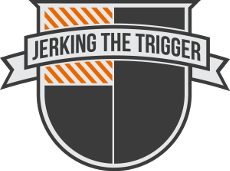You guys didn’t turn out in big numbers for last week’s segment of Be Heard. You are going to have to come strong this week to make up for it.
This week, I am wondering what you think about choosing a trainer. The trainer could be a firearm trainer, first aid, knife, martial arts, or any other type of trainer that is within the scope of this blog. Should you choose someone who teaches techniques that are similar to what you already know so that your methods are reinforced or someone who has a different technique so that you are stretched? Which gives you greater potential to learn?
Comment below to Be Heard!


Definitely new, different, and even contradictory to what you have always known or believed for training – simply reinforcing what you already know or believe is fine, but variety is the spice of life and all.
I have attended a lot of different firearms, defensive tactics and EMS classes over the years, and I have taken small parts of each one and adapted them for my own personal use.
And that is what I tell my students – not all of the training that I provide will be 100% perfect for you, but parts of it certainly will, so take what works for you, blend and adapt it with other training, and go out and win!
Lastly, as a professional trainer, I am constantly looking at different methods, techniques, and skills to provide for my students. Training is a constant evolution, and I have to balance teaching solid, basic fundamentals with getting my students to think on their feet while things are going to hell all around them with the goal of winning any encounter.
I really think you need both…
You need the trainer that can help you reinforce and refine what you’re already doing…
You need the trainer who will introduce you to new techniques and new ways of thinking…
Additionally, you need the trainer who realizes that their way isn’t absolutely the ONLY way… and one-size doesn’t fit all in the training realm…
Dann in Ohio
I like trainers that are versed, or at least familiar with, a handful of different techniques. That way they can look at how I move, as well as my body mechanics, and either suggest new methods or reinforce what I already do.
I guess I trust the trainer to make those judgement calls.
Both new and familiar are helpful, as long they know what they are talking about! I’ve spent the past 20 years in the military, listening to a wide variety of instructors, some great, some absolutely clueless.
I’ve actually pulled my troops out of a firearms “safety” class because the instructor was an idiot who flagged the entire front row of the class with his M4!
On the other hand, there are Marine instructors out there who I’d trust to teach my kids. What I’m looking for is real world experience and expertise.
There is a balance between variety and experience. I look for new instructors to broaden my skill set, not just for the sake of taking new instructors. And, it’s good to ask for references or look up AARs for courses you are looking at taking. I am looking for them to share their experiences as much as I am looking for them to share their skill set.
I have no problem with former students sharing their thoughts on my classes, it helps other folks determine if I offer something valuable to them.
Also, I would encourage a depth of training: wilderness survival, navigation, various communications systems, you can never take too many first aid courses – surviving bad guys can involve much more than simply surviving the gunfight.
Good question for sure. I think there are two student perspectives when considering the question. First, the student who is willing to expend resources to get “something completely different” and accept the fact that they may end up dismissing the majority of what they are being exposed to (or they may get that one nugget that is worth the price of admission). The second is the student who wants to get feedback on techniques and fundamentals that they have chosen to train and develop with. If we look across the high end of the cross section of instructors there isn’t a whole lot of “new” and “different”. Good instructors will emphasize fundamentals (trained in different ways/ personalities), but when it comes down to it there is not a whole lot of difference in the concepts they teach. An acceptable accuracy standard, executed safely, and conducted within time constraints that don’t require a sundial are an oversimplified but mostly true set of basic principles. Anything past these, e.g. “something completely different”… is usually some newcomer trying to differentiate themselves from the professional trainers. Innovation – yes. Just because they want to be different – no thanks.
Great stuff Mike. Thank you for dropping in.